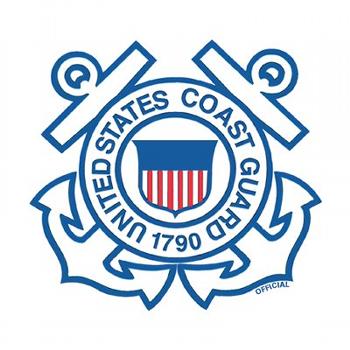USCG 5 Panel DOT Urine Drug Screen:
- Mandatory Testing: Required for every employee involved in transactions with the U.S. Coast Guard, excluding specific cases such as increases in scope, duplicates, and international endorsements.
- Substances Tested: The urine test screens for the following five commonly abused drugs:
- Marijuana (THC)
- Cocaine (COC)
- Opiates (including heroin)
- Amphetamines (including methamphetamines)
- Phencyclidine (PCP)
- Laboratory Compliance: Conducted at SAMHSA-approved drug testing laboratories to ensure accuracy and reliability.
- Form 719P: Completion of this form is included as part of the testing process to document compliance with USCG regulations.
- Importance: Helps maintain a safe working environment and ensures adherence to the stringent drug-free policies required by the Coast Guard.
This drug screen is a critical component of maintaining the safety and integrity of operations involving the U.S. Coast Guard.
Why would I need this test?
The USCG 5-Panel DOT Urine Drug Test is mandated by the U.S. Coast Guard (USCG) for individuals performing safety-sensitive duties in the maritime industry. This test ensures compliance with the Department of Transportation (DOT) regulations and is required for:
Pre-employment screenings for safety-sensitive maritime positions, such as deck officers, engineers, and crew members.
Random testing as part of the Coast Guard’s drug testing program to maintain vessel safety standards.
Post-accident testing when an incident occurs to determine if drug use contributed to the event.
Reasonable suspicion testing when there are signs or evidence of drug use.
Return-to-duty and follow-up testing after a prior positive test or violation of DOT/USCG drug policies.
This test ensures compliance with federal regulations and promotes safety within the maritime industry.
Will over-the-counter or prescription medications affect the test results?
Yes, certain over-the-counter and prescription medications may result in false positives during the test. Examples include:
Decongestants or cold medications containing pseudoephedrine may trigger positives for amphetamines.
Prescription pain medications (e.g., codeine or hydrocodone) may appear as opiates.
OTC sleep aids (such as diphenhydramine) could also influence the results.
Inform the testing administrator of any medications, supplements, or substances you are taking to ensure an accurate interpretation of the results.
How is the sample collected for the test?
The process for the USCG 5-Panel DOT Urine Drug Test is as follows:
You will be directed to a certified collection facility where a trained technician will provide you with a sterile container.
You will provide a urine sample in a private restroom under controlled conditions to maintain the sample's integrity.
In some cases, the collection may be observed by a same-gender technician if tampering is suspected.
The sample is then sealed and sent to a DOT-certified laboratory for analysis.
What happens if I test positive?
If you test positive for any of the substances:
You will be removed from safety-sensitive duties immediately.
You may be required to undergo an evaluation with a Substance Abuse Professional (SAP), who will recommend further treatment or steps before you can return to work.
Employers must report positive test results to the USCG, and additional consequences, such as suspension or revocation of your Merchant Mariner Credential (MMC), may apply.
You must pass a return-to-duty test and follow-up testing to resume safety-sensitive duties.
